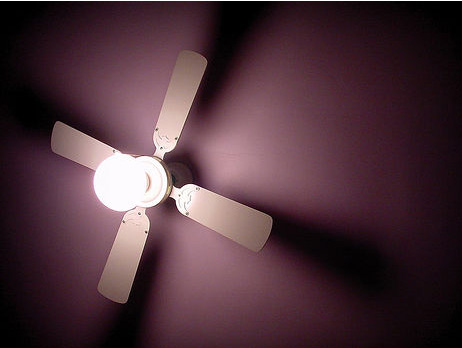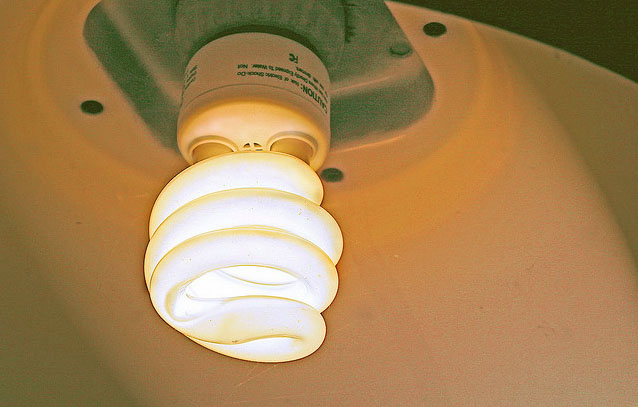
<a href="http://www.flickr.com/photos/74771420@N00/6372824/">elston</a>/Flickr
House Republicans are incensed about new energy efficiency standards for ceiling fans. “We’ve already seen the federal government stretch their regulatory tentacles into our homes and determine what kind of light bulbs we have to use,” said Rep. Marsha Blackburn (R-Tenn.) in a speech earlier this month. “Now they’re coming after our ceiling fans.”
“It is a sad state of affairs when even our ceiling fans aren’t safe from this administration,” she continued. “Enough is enough.”
The Department of Energy’s Energy Efficiency and Renewable Energy Office (EERE) released a framework for updating rules on ceiling fans in March. The 101-page document is full of discussion points about how exactly to define “ceiling fan,” whether fans that are merely “decorative” should qualify for regulation, and how the DOE should go about testing the efficiency of fans. It’s hardly a Marxist takeover of your home air circulation system; it’s only the first step in a three-year process to write new rules that will include several drafts and public comment periods.
But Blackburn and colleague Todd Roika (R-Ind.) say they’re waging a “fight to save our ceiling fans” from the big, scary Obama administration. Their effort has been covered by a number of outlets, including NPR and The Hill, and it led to a House vote of approval for an appropriations measure that blocked funding for the DOE to enforce fan standards.
But what Blackburn doesn’t mention is that she voted for the 2005 Energy Bill that kicked off the rule-making process for ceiling fans. And that bill was signed into law by noted radical environmentalist George W. Bush.
“She was for standards before she was against them,” said Marianne DiMascio of the Appliance Standards Awareness Project. “This bill was bipartisan effort.”
Asked for comment about the 2005 vote, Blackburn’s office sent a statement indicating that she would support efficiency standards—as long as they didn’t inconvenience the industry too much. “I support increased efficiency in American households but only as technology and innovation becomes readily available that can be supported and is needed by a consumer driven market. The ceiling fan industry already faces regulations that were codified in 2005,” said Blackburn in a statement. “Additional regulations, like those that were discussed in the Department of Energy’s rulemaking framework document, most likely will have an adverse impact by pricing consumers out of the ceiling fan market which in return would decrease household energy efficiency as consumers turn to less efficient methods to cool and light their homes.”
It probably doesn’t help that the largest fan company in the US, Hunter Fan Company, is based in Blackburn’s home state of Tennessee and is against improving efficiency standards, as Roll Call reported. Roika’s state is home to another large fan maker, Fanimation Inc.














